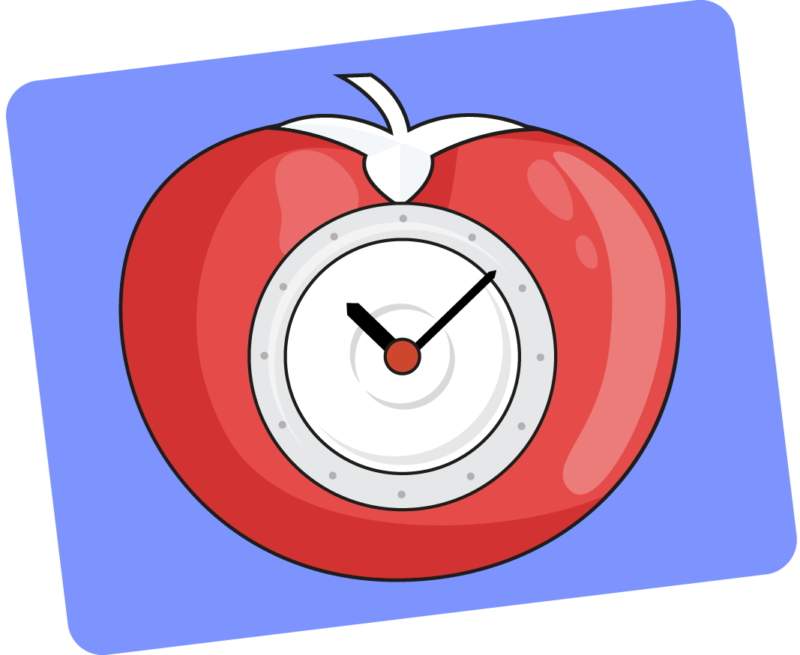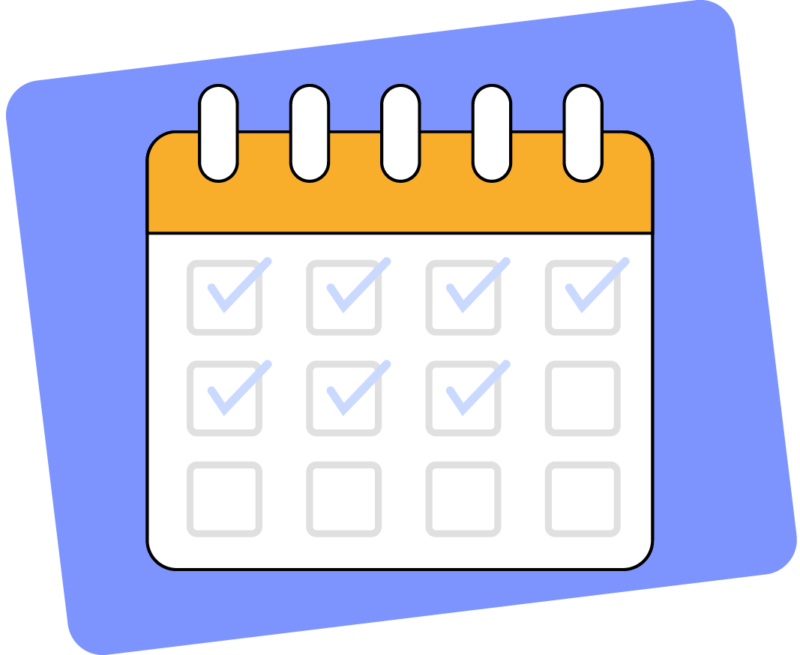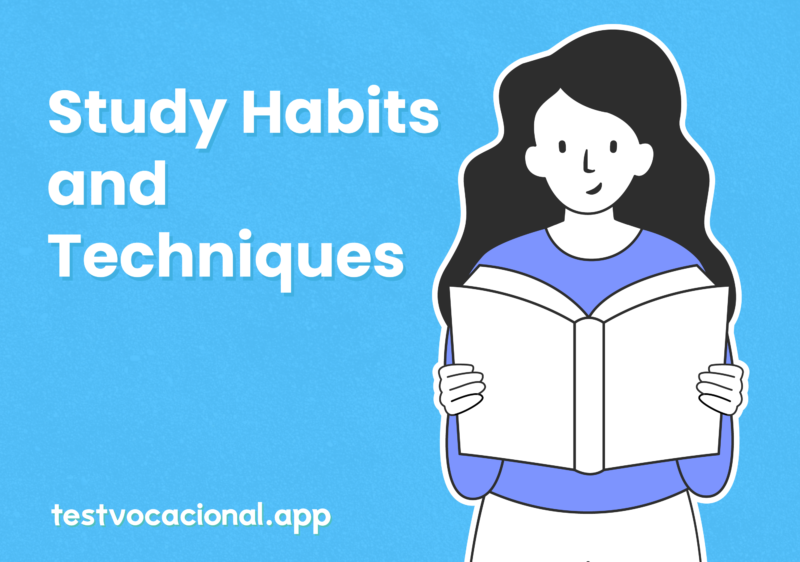Study habits are routines and strategies that help you learn more efficiently, stay focused, and perform better academically. In this guide, you’ll discover effective techniques like the Pomodoro Method, the Testing Effect, and more. Build a solid study routine, boost your concentration, and take care of your mental and physical well-being to reach your goals faster.
What are study habits?
Study habits are methods, routines, and strategies used to acquire knowledge, increase productivity, information retention, and academic performance.
They also help develop learning abilities like memory and attention, optimize time, and boost confidence and self-esteem.
How to study – Study techniques
If you want to make the most of your study hours and optimize your effort and performance, you can apply different study techniques.
With this set of methods, you will enhance your memory and reasoning, improve concentration, attention, and organization, organize your work, prioritize, and make the best use of resources.
The best study techniques
Optimize your effort and improve your performance while studying with these study techniques.
Pomodoro Technique

Improve the management of time spent on an activity by breaking it down into smaller chunks.
You should divide your time into indivisible 25-minute intervals of activity, called pomodoros, followed by 5 minutes of rest, with longer 30-minute breaks every four pomodoros.
Testing Effect

After studying, you should self-assess the topics you’ve read (depending on the subject, you can take tests, exercises, or practice exams). Studying this way increases the retention of information in your brain, helping you learn faster.
Distributed Practice

Distribute and space out your study topics before your exam. If you study a little each day, the content will be reinforced in your memory, and your confidence will grow. To implement this technique, schedule your study periods in your calendar, distributing the content.
Self-explanation

The self-explanation technique involves explaining to yourself, in your own words, what you’ve just read and relating it to concepts you’ve already learned. This technique helps improve creative reasoning and allows you to learn and retain information more easily over the long term.
Productivity tips – Boost your performance
Discover all the tricks to increase your productivity when studying and improve your academic performance.
When studying, it’s important to be productive and achieve the best results in the shortest possible time to meet deadlines and reach your goals. To achieve this, we will teach you techniques to organize, plan, and optimize the performance of your study sessions.
Mental exercises – Train your brain
Just like the rest of your body, your brain needs exercise. Our exercises and games will help stimulate and sharpen your mind, keep your memory fit, and put you to the test.

Visual perception exercises
These exercises are useful for stimulating attention, orientation, concentration, and the perception of differences.

Calculation exercises
Mental arithmetic helps exercise our brain, reduces cognitive problems, keeps our mind agile, and increases our performance.

Reasoning exercises
These exercises are designed to train our problem-solving and deductive skills, preparing us to solve problems faster and more effectively.

Spatial exercises
Spatial reasoning exercises help stimulate imagination, increasing the ability to visualize objects in the mind without losing their characteristics.

Memory exercises
These exercises help stimulate, reinforce, and activate areas of short-term and long-term memory. By exercising your memory, you will be able to retain more information when you study.
Healthy habits – Improve your habits
Studying can be a highly demanding stage. That’s why it’s important to develop healthy habits that support both your physical and mental well-being.
Good habits not only improve your academic performance—they also help you maintain emotional balance and prevent burnout.
- One key factor is sleep. Getting enough rest isn’t a luxury; it’s a necessity. While you sleep, your brain processes and stores what you’ve learned.
Try to keep a consistent sleep routine. Avoid staying up late before exams and aim for 7 to 9 hours of sleep each night. - Balanced nutrition also plays a fundamental role. Eating well gives you the energy and focus needed to stay productive during long study sessions.
Include fruits, vegetables, proteins, and whole grains in your meals, and stay hydrated throughout the day. - It’s also a good idea to include physical activity and active breaks in your daily routine. You don’t need to go to the gym—walking, stretching, or doing a short mindful movement session can make a difference. Exercise helps release tension, boosts your mood, and stimulates memory.
- Mental health is just as important. Don’t push yourself beyond your limits, and learn to recognize when you need rest or support.
Practicing relaxation techniques, meditation, or mindful breathing can help you manage stress and anxiety during intense study periods. - Finally, create a study-friendly environment. Look for a quiet, well-lit space free of distractions. Keep your materials organized, set realistic schedules, and avoid overusing your phone or social media while studying.
Adopting healthy study habits isn’t about studying more—it’s about studying better, respecting your own rhythm, and taking care of your overall health.
Don’t know what to study? – Career Test App
Take orientation tests, discover more about yourself, and get all the information you need about university careers.



